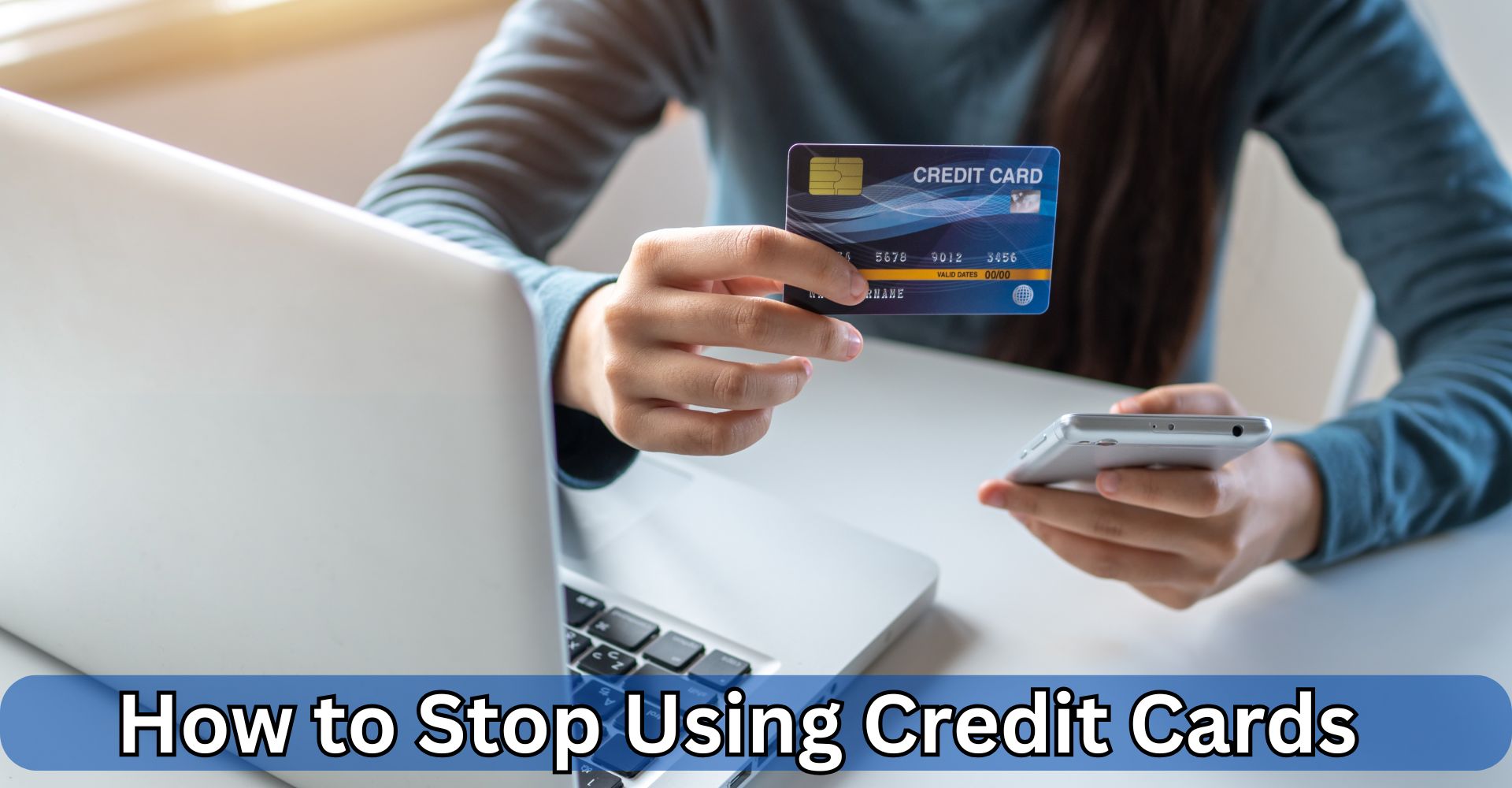Are credit cards controlling your finances rather than helping you? It’s time to break free! While credit cards can be useful tools, they often lead to spiraling debt, high-interest payments, and financial stress. The good news? You can regain control over your money and stop relying on credit cards altogether. Imagine a life where you’re debt-free, financially empowered, and stress-free about monthly statements. Sounds amazing, right?
In this blog, we’re sharing 12 life-changing tips on how to stop using credit cards for good. These practical strategies will help you build better financial habits, replace credit card dependency with smarter choices, and pave the way for lasting financial freedom. If you’re ready to say goodbye to credit card debt and hello to a healthier relationship with money, keep reading—you’re just steps away from transforming your financial life!
12 Life-Changing Tips on How to Stop Using Credit Cards for Good
Credit cards can be a double-edged sword. While they offer convenience and rewards, they can also lead to debt, stress, and financial strain. If you’ve been struggling with managing your credit card usage, it’s time to take a step back and regain control over your finances. Learning how to stop using credit cards doesn’t mean giving up on financial tools—it means building a healthier relationship with money and living without the burden of credit card debt.
ALSO READ –
- 50 Spring Activities on a Budget That Will Transform Your Season!
- What Are Mutual Funds? Features, Advantage and Disadvantage
- Is Pet Insurance Worth It?
- Summary Of No Man’s An Island By John Donne
Here are 12 actionable and life-changing tips to help you break free from credit card dependency and achieve financial freedom.
How to Stop Using Credit Cards
1. Understand Why You Rely on Credit Cards
The first step in breaking any habit is understanding why it exists. Are you using credit cards to cover emergencies, overspending, or as a convenience for daily purchases? Identifying the root cause of your reliance on credit cards will help you address the issue effectively. For example, if you’re using them for emergencies, it’s time to build an emergency fund.
2. Create a Realistic Budget
A solid budget is your best defense against credit card dependency. Track your income and expenses to understand where your money is going. Allocate specific amounts for essentials like rent, groceries, and savings. A well-planned budget ensures you’re living within your means, reducing the temptation to rely on credit cards.
3. Build an Emergency Fund
Emergencies happen, and credit cards often become the go-to solution. To stop using credit cards, start building an emergency fund. Aim for at least three to six months’ worth of living expenses. Having cash reserves gives you peace of mind and eliminates the need to swipe your card when unexpected costs arise.
4. Switch to Cash or Debit Cards
Switching to cash or debit cards is a simple yet effective way to curb credit card use. Cash forces you to stick to your budget since you can only spend what you have. Debit cards offer convenience while ensuring you don’t spend money you don’t own. Keep your credit cards at home to avoid the temptation of using them.
5. Use the Envelope System
The envelope system is a powerful budgeting tool. Allocate cash for specific spending categories, such as groceries, dining out, and entertainment, and place the cash in labeled envelopes. Once an envelope is empty, you can’t spend more in that category until the next budgeting cycle. This method keeps your spending in check and eliminates the need for credit cards.
6. Pay Off Your Existing Credit Card Balances
Stopping credit card use doesn’t mean ignoring your existing balances. Create a debt repayment plan to tackle your outstanding amounts. Focus on paying more than the minimum balance each month and consider using methods like the snowball (paying off smaller balances first) or avalanche (paying off high-interest balances first) techniques.
7. Freeze Your Credit Cards
If you’re serious about learning how to stop using credit cards, consider freezing them—literally. Place your credit cards in a container of water and freeze them in your freezer. This gives you time to think before making impulse purchases since thawing them requires effort. Alternatively, store them in a safe place where they’re out of reach.
8. Remove Stored Credit Card Information Online
Online shopping can be a major trigger for credit card usage, especially when your card details are saved for convenience. Delete your stored credit card information from online retailers to make impulsive purchases less convenient. Use a debit card or digital wallet linked to your checking account instead.
9. Set Financial Goals
Setting clear financial goals can motivate you to stop using credit cards. Whether it’s saving for a vacation, buying a home, or building a retirement fund, having a tangible goal keeps you focused and disciplined. Visualize your goals regularly to remind yourself why cutting credit card use is worth it.
10. Educate Yourself About Interest Rates
Credit card interest rates can be incredibly high, often exceeding 20%. If you carry a balance, you’re paying significantly more for your purchases over time. Educating yourself about how interest compounds and adds to your debt can serve as a wake-up call and reinforce your decision to stop using credit cards.
11. Seek Accountability
Breaking a habit is easier when you have support. Share your goals with a trusted friend or family member who can hold you accountable. You can also join online communities or financial support groups where members encourage each other to adopt better money habits.
12. Reward Yourself for Progress
Breaking free from credit card dependency is a significant achievement, so celebrate your progress! Set milestones, such as going one month without using credit cards, and reward yourself with small, budget-friendly treats. Positive reinforcement keeps you motivated and focused on your financial journey.
Why Stopping Credit Card Use Is Worth It
Learning how to stop using credit cards doesn’t just help you avoid debt—it transforms your financial habits, builds discipline, and empowers you to live within your means. It also gives you the freedom to focus on what truly matters, such as saving for the future or enjoying life without the stress of unpaid bills.
Conclusion
Breaking free from credit card dependency may seem challenging, but it’s entirely possible with the right mindset and strategies. By following these 12 life-changing tips, you can take control of your finances, eliminate debt, and pave the way for a more secure and stress-free future.
Remember, every small step you take today brings you closer to financial freedom. Start now and watch how your life transforms!











